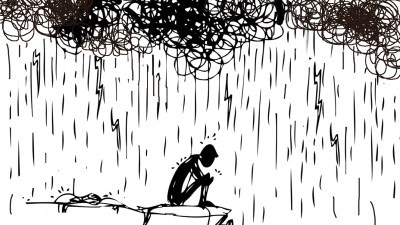By Dr. Alan Leavens and Natalie Taylor
Michelle Obama’s announcement that she is suffering with “low grade depression” made something quite clear—mental health issues are neither class-conscious, gender-conscious, nor color-conscious. They are equal opportunity afflictions because none of us are immune to how our minds and hearts react to the issues that affect our lives.
The former first lady explained that the pandemic is a great part of the emotional “highs and lows” she has been dealing with for several months. “I’m waking up in the middle of the night because I’m worrying about something or there’s a heaviness.” But it’s not only the quarantine that is causing her distress, it’s the awful national events that have been unfolding. The racial inequities and social unrest, the deaths, the uncertainty about the future—all immediate and momentous—and the frustration, bordering on despair, of seeing people not treated right. It’s painful how those who risk their lives—the doctors, nurses, essential workers—are not just unacknowledged, but often maligned and threatened. With schools reopening, there is the additional stress for teachers and parents in figuring out how to give children an education during a pandemic.
We ought to allow ourselves to feel empathy with everything people are dealing with. Don’t be surprised if you exhibit some of what Michelle described—sleeplessness, a lingering sense of doom, a deep sadness, and a feeling of despair. These are difficult times and it’s normal to be mentally struggling today.
Once we acknowledge our shared humanity, a former first lady’s declaration about having a mental health issue, comes as no surprise. But we can learn from what she has experienced and how she dealt with it. She says we ought to “feel whatever it is you’re feeling,” an acknowledgement of the problem. Giving yourself permission to feel the emotions you have will allow you to identify them and seek a solution. That’s the first step in reclaiming mental balance.
The second is seeking help. Michelle found comfort in the kind messages she got from friends and loved ones, but these came because she reached out. She encouraged those who offered her a hand to do the same for others, to contact them through text, a call, a video chat. “Don’t be afraid to offer them a shoulder to lean on, or to ask for one yourself.”
Her self-help program includes keeping a routine—regular exercise, time outdoors, regular mealtimes and a break from work or constant information overload. Finally, know that it’s ok to reach out to a professional therapist. That’s what they are there for. When the sole of your shoes is scuffed, you go to a shoe repair shop. When your soul is scraped, a therapist might be just the one to help you cope.
What we are living through is uniquely difficult, but Michelle added a final hopeful note we would be wise to cling to: “We will get through this.”
Alan Leavens, Ph.D., is a California licensed Clinical Psychologist, living and working in SMA. For questions or concerns that you wish him to address, please email: aleavens@drleavens.com

